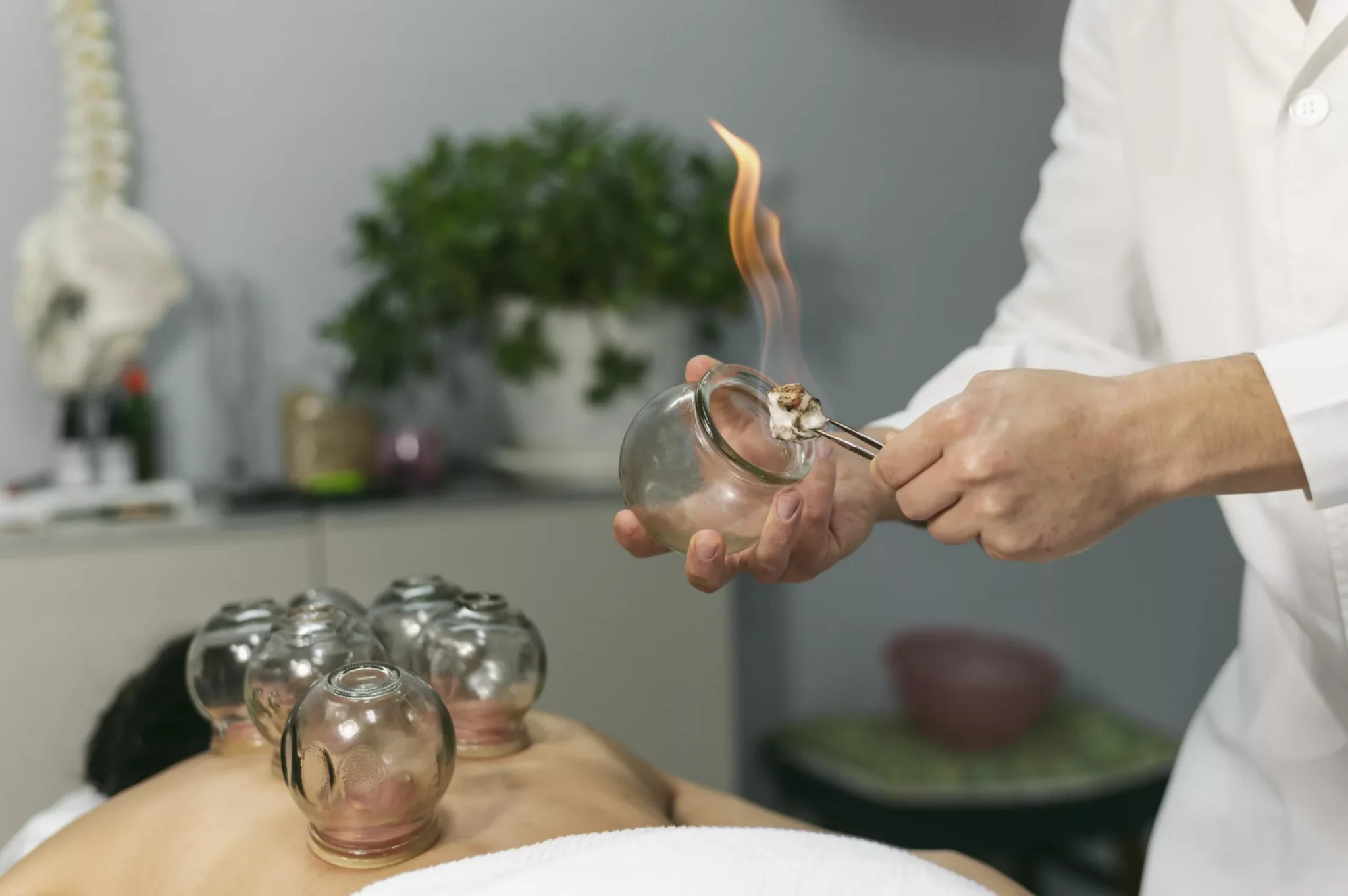
It takes time and patience to get better after an operation. The area that is healing is still the tissue underneath, even after the wound has been closed. Plenty of people feel that the skin around the scar becomes tight, stiff, or they have a feeling that the movement is limited there.
Some people even experience pain when the tissue gets stuck or is less flexible during the healing process. This is the exact point where cupping therapy comes to the rescue. The technique is gentle and effective in providing the body with the required energy to heal itself once more.
While looking for options to have a better recovery, if you consider cupping therapy, knowing the procedure of the treatment can be of great help to you in deciding wisely.
Cupping therapy is the process of using small cups that are positioned on the skin to create light suction. This suction makes a small tear in the skin and thus promotes better blood flow.
When you operate on the body part of the body, scar tissue will inevitably result as the way the body heals. It is still part of the healing process, but the tissue may become so dense that it limits the range of motion. The cupping’s lifting movement is thus a very effective way of opening up the scar tissue.
Keeping the scar tissue flexible is one of the goals of scar management. A stiff scar tissue can cause discomfort or even limit mobility. By improving the flow of blood and oxygen, cupping supports healthy tissue formation and thus ihelps.
Adhesions are the most frequent problem after any surgery. These tissue areas are the ones that get stuck or are layered in a nonuniform manner. Adhesions may also form beneath the scar and make the regular movements of the body painful.
Medical cupping therapy Aylesbury is all about easing the discomfort caused by these adhesions. The vacuum inside the cups pulls apart the different layers of tissue in a very gentle way. In this way, the suction recovers the sliding and the movement between the skin, fascia, and muscle. After a while, quite several people report that their movement has become more fluid, and the area that was tight has been relieved.
Good blood flow is a must if we are to have healthy tissue repair. A body post-surgery is a very busy one, it works hard to rebuild the injured area, however, the blood flow may still be very limited around the scar tissue. The blood that is made fresh by the help of cupping therapy is the one that is used for the delivery of nutrients and for the removal of waste products.
Improved circulation also assists in the reduction of swelling and the regeneration of healthy tissue. Quite a few patients express that they get a certain feeling of relief as the area after a couple of treatments becomes softer and more comfortable.
Scar tissues sometimes can be irritated or hurt and that happens mostly when a certain part of the body is pressed. There are individuals who experience a sensation of pulling or a sharp feeling when they stretch or move a particular area of the body. Cupping therapy is a method that supports the healing process of the area by increasing tissue mobility and lessening the inflammatory response.
As the treatment is very gentle, it also allows the nervous system to calm down. A lot of people report that the area that has been treated feels more like a usual and less sensitive after a certain period.
Recovery after surgery is not only about the process of healing. It is also about the return to the usual movements. The area that is stiff due to a scar can negatively affect the functioning of the joint or muscle. Cupping is one of the methods that assists in bringing back the lost flexibility by breaking up the tissue and facilitating the movement of the layers between each other.
For instance, a person who underwent an abdominal operation might experience a sensation of pulling while bending or twisting. A patient after knee or shoulder surgery might feel some kind of stiffness in the movements. The application of cups can be a source of comfort to these parts, thus facilitating a more fluid and less painful movement.
Read More: Myths, Misconceptions and Surprising Beliefs About Cupping
A cupping session is usually peaceful and soothing. A physiotherapist puts cups on your skin and changes the suction to a level that fits your situation. Some cups are left in a spot while others may be rubbed on the skin to loosen the stiff parts. The feeling is more like being warmed and pulled than hurting.
Suppose you look for a physiotherapist near you that provides this kind of treatment, they will initially verify your medical history and the recovery phase to ensure that cupping suits you.
Read More: Can Cupping Therapy Really Help My Back Pain?
One of the reasons cupping therapy Aylesbury is highly favored by many patients is because it is a gentle, non-invasive, and healing through nature process. It assists in making the look and feel of the scars better, alleviating the pain, and bringing back the functioning.
If your goal is to have a treatment that assists your body to recover in a less bumpy way after an operation, then medical cupping therapy in Aylesbury may definitely work as a helpful and strong alternative for you to consider.
Dig deeper into physiotherapy, health, and related topics that you care about by signing up for our newsletter.